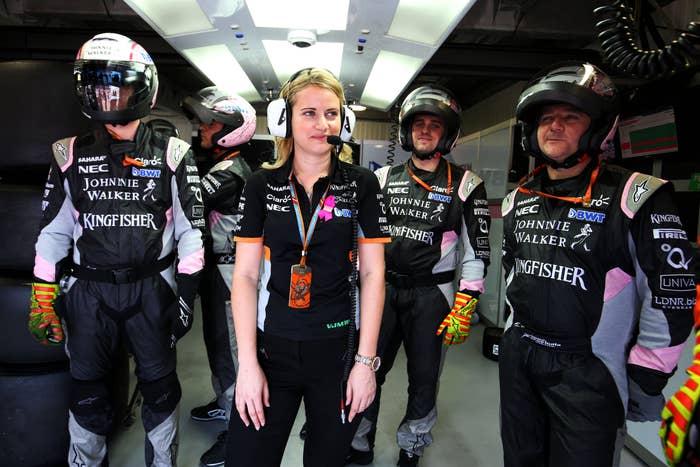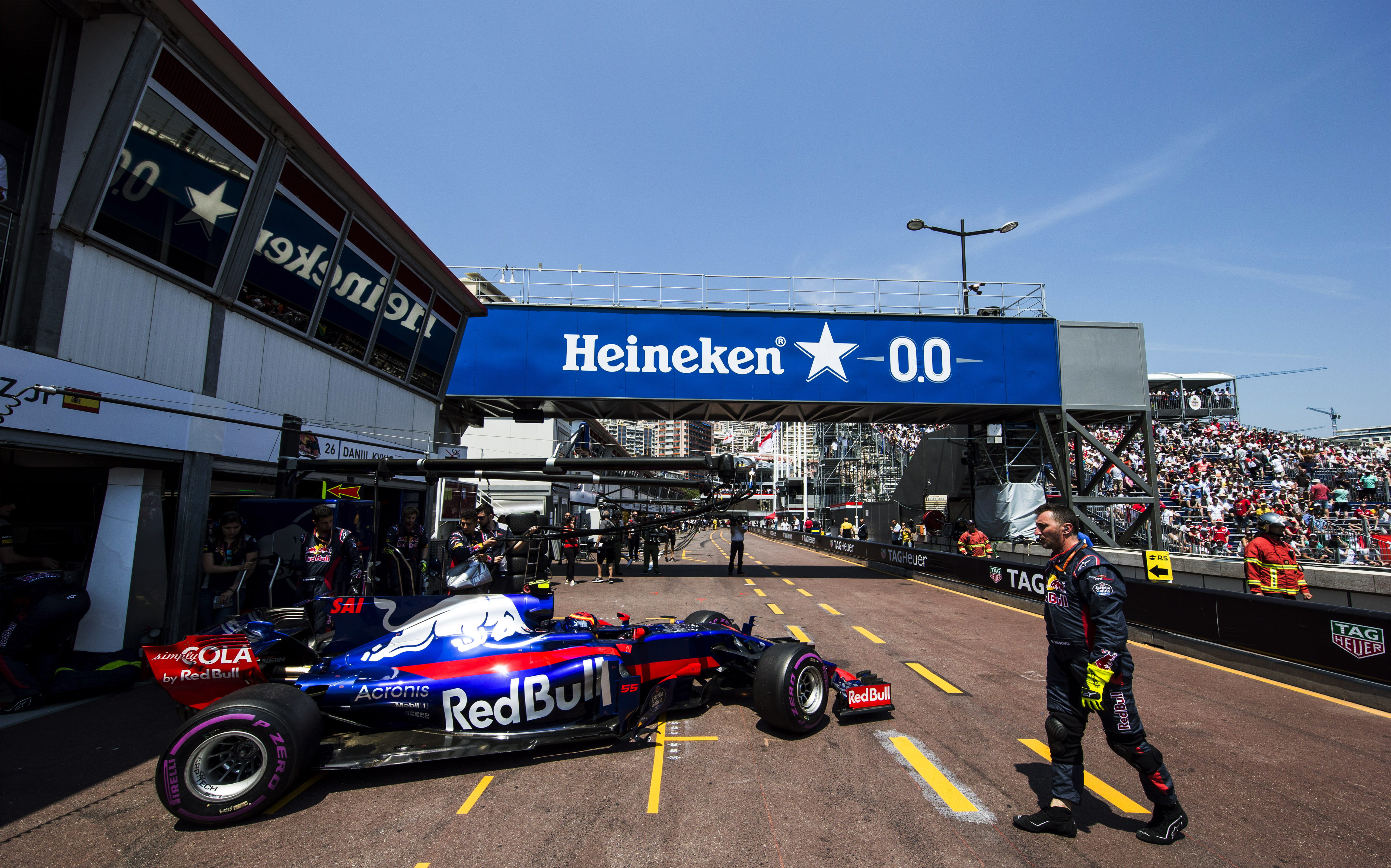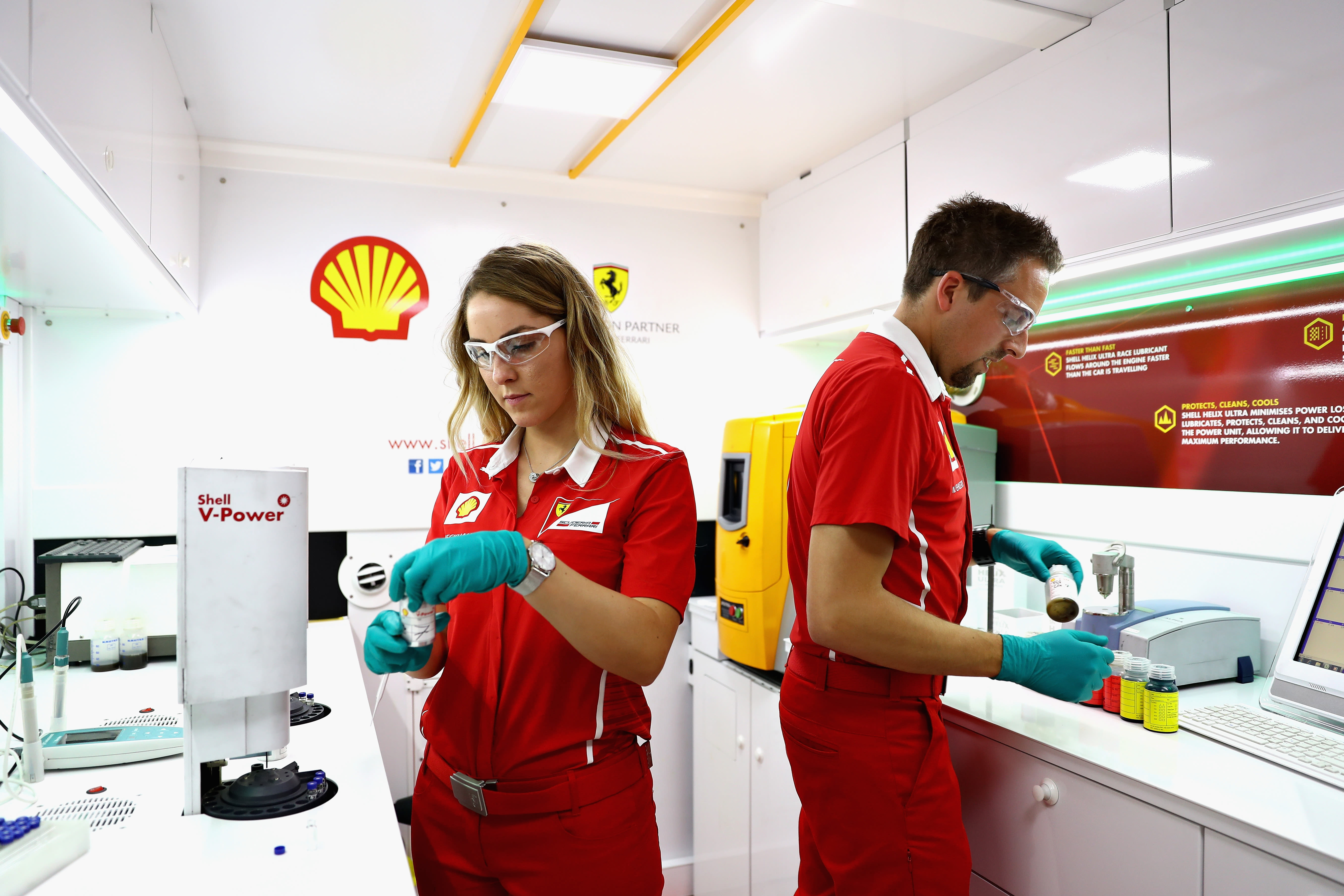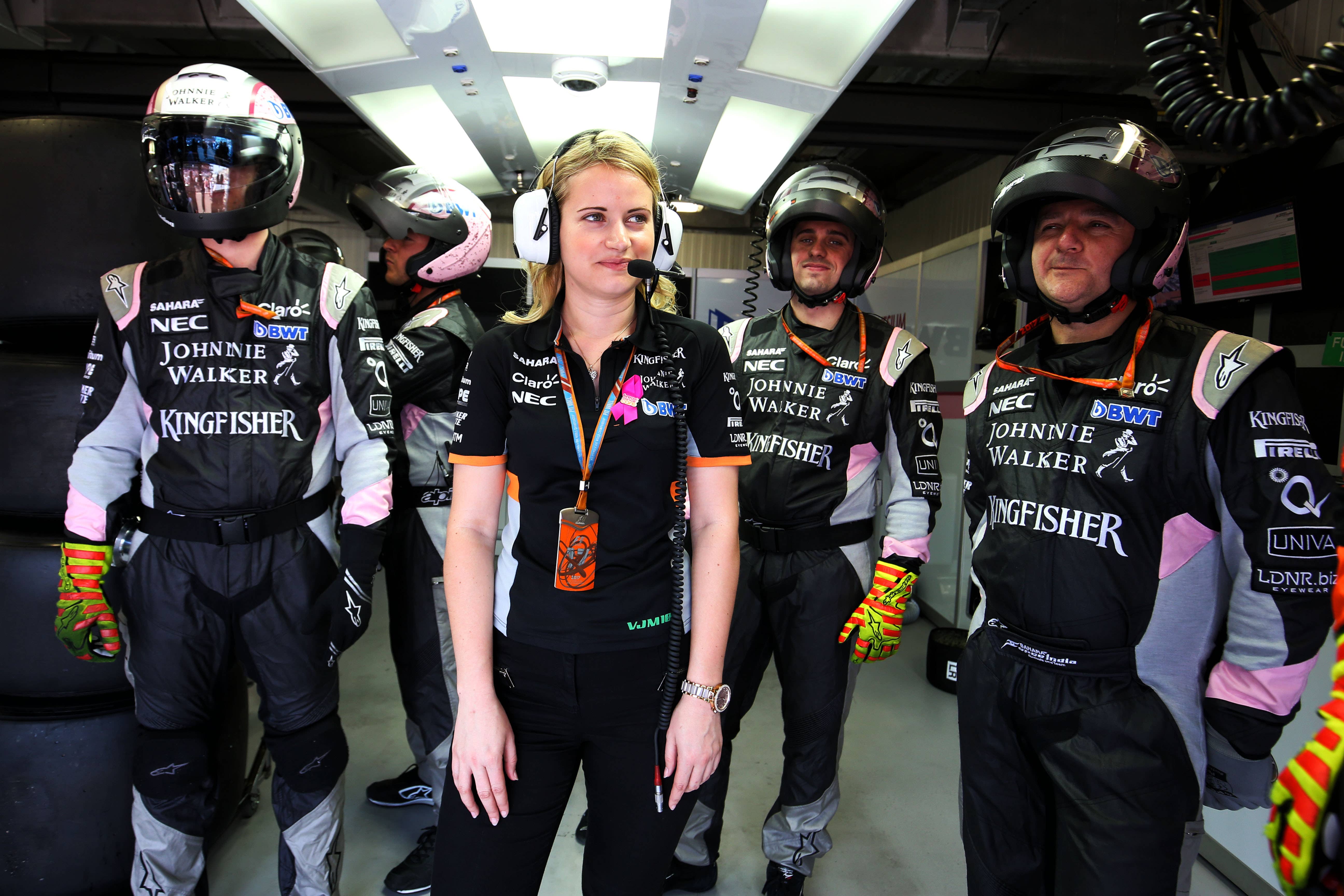
Heineken, as one of the official sponsors of Formula One is shining a light on stereotypes within the sport and opening it up to new audiences through its campaign ‘More than a Race’. Formula One may be known as a traditionally male dominated arena, but more than ever before women are helping shape the future of the world's fastest sport.
There was a time, many decades ago, when the sport was still establishing itself, that a team's personnel would be a strictly all-male affair and "race strategy" amounted to as much as just telling the driver to put his foot to the floor and go for it. But nowadays, with the proliferation of racing technology, success in F1 is not only based on a driver's skill but increasingly their pit crew's ability to interpret and communicate data effectively—and for Bernadette Collins, making those right calls, at the right times, is her responsibility.
I ENJOY THE FAST PACE, NOT JUST OF THE RACE BUT LIFE IN GENERAL AND THE COMPETITION."
Bernie, as she's known to her colleagues, is the senior strategy engineer at Sahara Force India; "I'm responsible for the planning, execution and analysis of race strategy over each event in order to secure the maximum points possible for the team. I work with two car specific strategists to help select a race plan and pit stops in continuously changing conditions to achieve the best results." In a world where success or failure can be decided by a matter of milliseconds, being in the position where you have to constantly call the shots is something you have to revel in doing, and luckily, she does; "I enjoy the fast pace, not just of the race but life in general and the competition."
Under her leadership, her team Sahara Force India consistently punch above their weight. On a far smaller budget than their manufacturing rivals, the team finished fourth in the constructor's championship last season. Collins explains how her team has made that happen: "I think from the outside the focus is on the winners and championship battle, and perhaps rightly so, but up and down the pit lane there are many battles for position going on and the smallest decision or piece of information can make the difference." In a motorsport where the car can reach speeds of 200 mph in under 10 seconds, being prepared for the most unlikely of events helps, and this is something Bernie can attest to: "in many races an event or situation occurs which has not been planned for but requires an almost immediate response. Thinking through the options quickly and logically when the radio is often very busy to give a clear confident decision is very difficult."

In such a pressurised environment, you could be mistaken for assuming being one of the only women on a team of men could pose something of a challenge, but when asked how she feels about being a women in a competitive sport that, for the time being, remains male dominated, Bernie's resolute in her response: "I get asked the question a lot, and I honestly don't really think it has affected me. Having studied engineering since I was 18, I've been part of a male dominated environment, so I'm very accustomed to it by now. I get on well with all members of the team so it’s a really great environment and we have a laugh when we can."
That imbalance in gender representation is an issue that is fast being addressed. Perhaps even quicker than the majority of other major competitive sports around the world. The FIA’s president Jean Todt set up the Women in Motorsport Commission (WiMSC) initiative in 2009 seeking to make Formula One more accessible, specifically for women. Todt championed news that the number of women involved in motorsport had recently begun to look more positive, but agreed there was still work to be done.
There is less demand for the ladies bathroom in the pit lane so for a change I get to walk past a queue of men."
Traditionally, many more men than women have studied engineering degrees and subsequently made it far enough to ever be considered for a place on a team. Truth be told, a career in Formula One is something that most people only get to dream about. However one of the more common ways young people get their foot in the door is through a graduate program, this is how Bernie started life out as an engineer. "I really enjoyed mathematics and physics at school but was unsure which field I actually wanted to work in. During my studies I took part in the IMechE organised Formula Student event in which university teams design, build and race a single seater race car. This was the driver for me applying to motorsport companies when I graduated. I was successful in securing a graduate position with McLaren Racing and worked there before joining Sahara Force India."

For the time being, Bernie remains something of a pioneer in the sport—and whilst she holds one of the most influential roles in a top team, she's incredibly down to earth about her success; "I struggle to make my voice as loud on the radio when things are going wrong but I work to overcome this, I just up the volume on my radio. There is less demand for the ladies bathroom in the pit lane so for a change I get to walk past a queue of men."
TV coverage more recently has highlighted the engineering roles throughout the pit lane more than just the drivers."
When Collins isn't watching and executing strategy from inside the pit, she can be found back in the team's Silverstone factory preparing for next weekend's race event, and it's this behind-the-scenes work that's started to become more visible that's helped make the sport's accessibility to all genders. She explains: "When I started to look into engineering as a degree when leaving school I knew very little about the discipline and the opportunities that existed. I think TV coverage more recently has highlighted the engineering roles throughout the pit lane more than just the drivers which is positive."

The fascination with the pit lane is perhaps one of the biggest things that sets Formula One apart. The attention to detail and level of science involved in keeping up with the competition requires the majority of teams to have a staff of around 300 people. Roles are employed to take care of every part of the £6 million cars, and their drivers, to keep both ticking over at optimum pace—from race strategists, like Bernadette, right down to a team that monitors the fuel that quite literally keeps the competition running.
You would never survive if you don’t have a passion for what you are doing."
Jennifer Plückhahn is someone who works trackside as Shell's F1 fuels co-ordinator. She's responsible for all the laboratory activities during race weekends, working alongside Scuderia Ferrari engineers to ensure that drivers Sebastian Vettel and Kimi Räikkönen's cars have legal and healthy fuels and lubricants. A fan first and foremost, Jennifer has now made the sport she loves her job. Having always followed Formula One and MotoGP, she jumped at the chance to join Shell's fuel research team, and as the only girl on the team.
The personal sacrifices you need to make in order to pursue the sport as a career is perhaps the only downside to a job of a lifetime as Plückhahn explains: "You certainly have to be very organised and really have to live for the job when on site. The working hours are very long, which makes it harder to stay fit and healthy. You would never survive if you don’t have a passion for what you are doing, because you are travelling a lot, which also means less time with your family."
After all the Formula One calendar sees its competitors stopping off at a new race location every other weekend. Monte Carlo to Singapore, Sao Paulo to Silverstone, the people who make Formula One happen know it's not just a 2-hour race they're taking part in but a 72-hour spectacle of glamour and excitement. Heineken, as one of the official sponsors of Formula One is shining a light on gender stereotypes and the company's head of corporate affairs, Blanca Juti, understands very well the challenges of a masculine environment and professes that things are changing: "millennial men and women don’t want to be trapped by gender stereotypes and they are looking for work in places that understand that. I have also not wanted to be boxed in by my gender."
With a greater push for diversity across the sport, it's only a matter of time until the rise of women in Formula One is fully recognised. And whilst there may not be as many women in the paddock as there currently should be, women are without doubt firmly in the driving seat for the years to come.

